
In the latest round of action on bills, Virginia Gov. Glenn Youngkin signed 100 bills passed by the Virginia General Assembly, including one to protect Virginians from unlawful discrimination, hate crimes and antisemitism. The governor vetoed four others, including one to create civil penalties for shop owners who fail to advertise they are selling invasive plants that could harm other species.
Among the 100 bills signed is a measure that will codify a recommendation by the Commission to Combat Antisemitism that Virginia revise its laws to better protect Jewish citizens from hate crimes, along with Muslims, Sikhs and other ethnic-religious groups.
Youngkin said the legislation aligns with one of his top priorities: combating antisemitism.
“As the first state to weave religious freedom into the fabric of our nation, Virginia is leading once again and sending a clear message that Virginians should not be the victim of a crime simply because of their religion, race, or ethnicity,” the governor said in an April 2 press release.
Sen. Bryce Reeves, R-Spotsylvania, and Del. Dan Helmer, D-Fairfax, carried the legislation, Senate Bill 7 and House Bill 18.
“I’m thankful for the governor’s signature and the bipartisan co-patrons of this important bill,” said Reeves in a statement. He added that legislation outlawing antisemitism isn’t just about protecting a particular group, but about “defending the fundamental values of equality, justice, and human dignity for all.”
Helmer, a descendant of Holocaust survivors and a Jewish man whose children “confronted antisemitism” in school, Helmer said the legislation is important to him.
“Hate has no place in our communities,” Helmer said in a statement, adding that he is grateful for the governor’s signature to “protect people of every ethnicity across the commonwealth.”
Other interesting pieces of legislation the governor signed into law include House Bill 143, which directs the Virginia Department of Transportation to create a publicly-accessible utility work database and map that details projects within state-maintained areas, excluding emergency maintenance and services to private properties. Another measure, House Bill 322, will create a Cosmetology Compact, which will allow people to be licensed to provide barbering, hair styling and other cosmetic services in Virginia and other states that join the compact initiative.
Vetoed legislation
The governor also vetoed four bills that would have required the state to adopt model public education policies on climate change and environmental literacy, permitted college instructors to request non confidential garnishment data for research purposes, and created penalties for shop owners who fail to identify invasive plants they sell.
In explaining why he rejected the bill on adopting model policies for climate change, the governor said the measure is already included in the Standards of Learning for students, and the proposal “imposes a significant and redundant task” on the Department of Education and the Board of Education. Read More
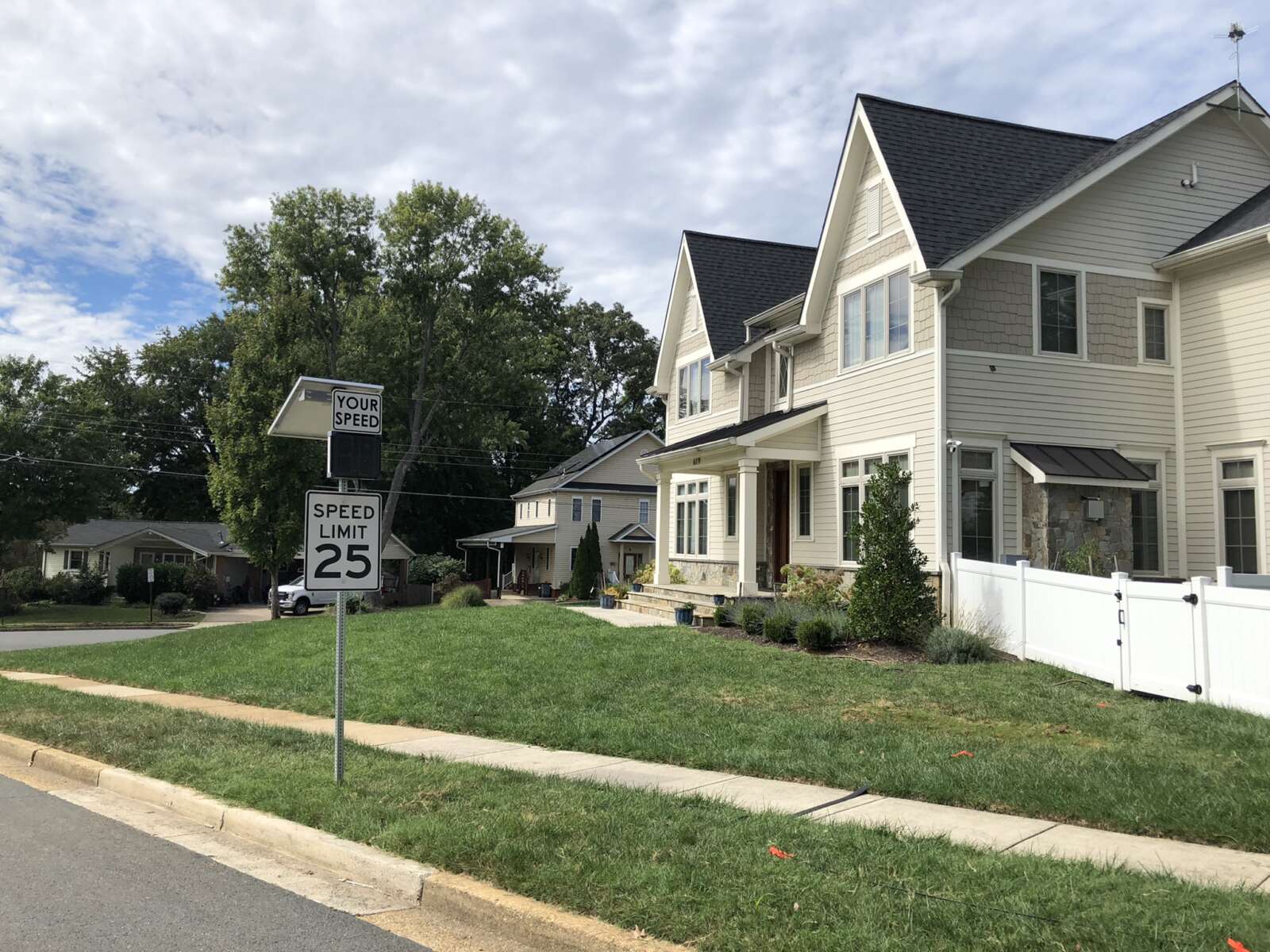
The Virginia General Assembly passed a measure three years ago allowing local governments to decrease roadway speed limits in their localities to as low as 15 mph. But recently, lawmakers found that the Virginia Department of Transportation denied seven of eight speed limit decrease requests, because, by state law, only the Commissioner of Highways can authorize changes on state-maintained roads.
Earlier this month, legislation advanced that would expand a locality’s speed-reducing authority to roadways within a business or residence district, including state-owned highways.
The number of requests represent a small fraction of the local governments in Virginia, including the 190 towns and 39 independent cities in the commonwealth, according to data from the U.S. Census. For the localities that are seeking to reduce speeding, though, the limits of the 2021 legislation are a challenge.
“Everybody can concede that there’s an issue here, but we have very little authority to do anything about it,” said Mayor Roger Vance, who represents the Town of Hillsboro, which was denied their request to lower the local speed limit to 20 mph last year.
The 2021 legislation did not extend localities’ speed reducing power to state-owned highways, which typically run through some towns like Middleburg and Hillsboro.
As proposed, the new bill would require local governments to conduct engineering and traffic studies as part of any effort to change the speed limit, post “lawfully placed” signs showing the reduced speed limit and notify the commissioner of the change.
The bill nearly failed in the Senate in February after Lt. Gov. Winsome Earle Sears split a tie vote, but it was reconsidered successfully and sent to Gov. Glenn Youngkin for approval.
Del. Betsy Carr, D-Richmond, the legislation’s sponsor, said she is working with the governor’s administration to ensure Youngkin signs her bill into law, but it could require an amendment.
Representatives from the Virginia Municipal League and Virginia Association of Counties, representing local governments in the commonwealth, said their members supported this bill.
“We firmly believe that this enhanced authority serves as an invaluable addition to our existing toolkit for implementing crucial safety measures,” said James Hutzler, government relations associate for VACO, in a statement. “With this legislation in place, counties will be empowered to take proactive steps towards safeguarding the well-being of our communities.” Read More
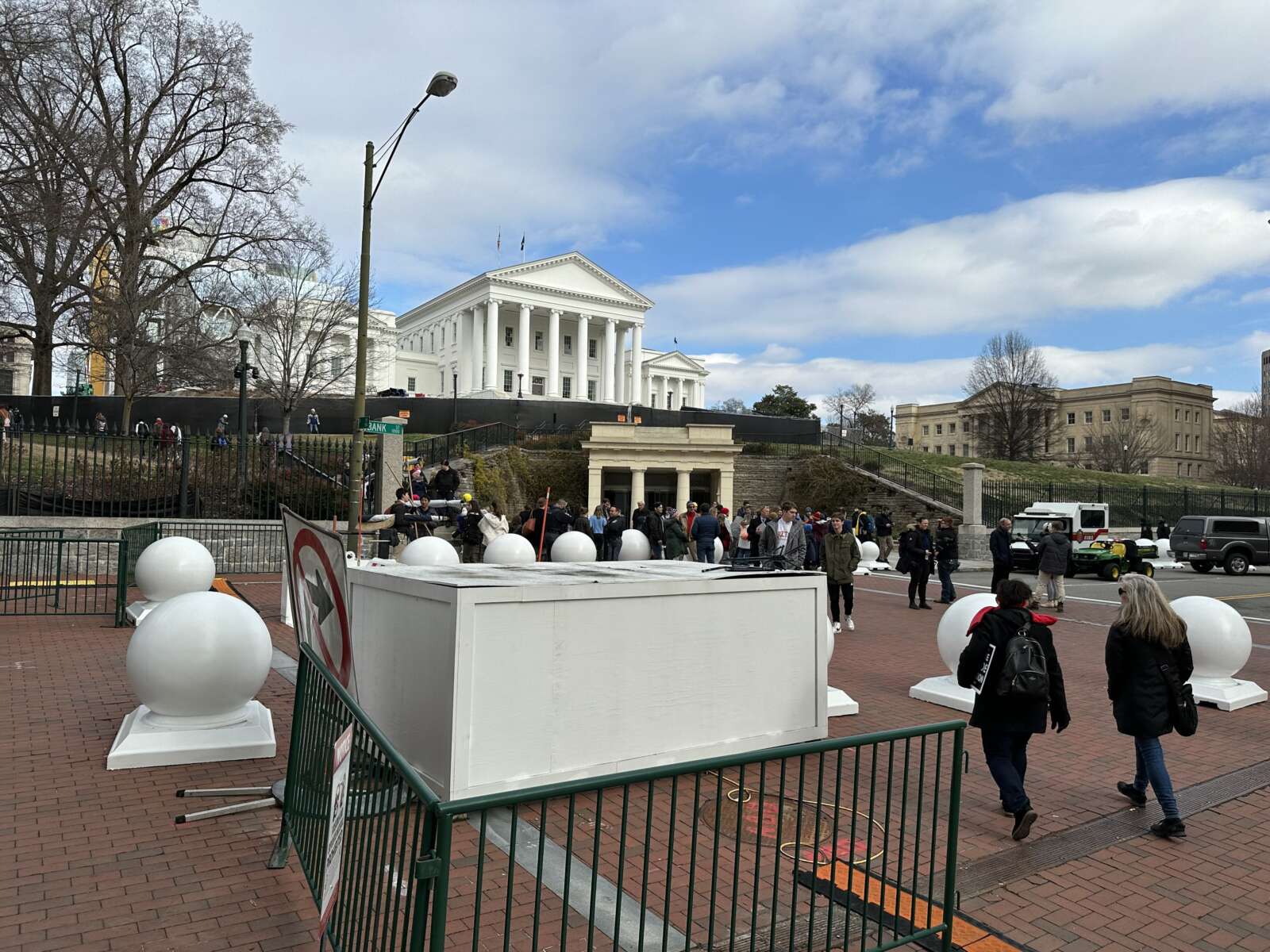
Virginia’s next General Assembly won’t convene until Jan. 10, but senators and delegates have already begun penning legislation. (And by that, we mean the Virginia Division of Legislative Services is hard at work translating their goals into the high-flown tones of state code.)
On Monday, the start of the 2024 session’s official prefiling period, lawmakers dropped the first bills that will be up for consideration this January.
Much more is yet to come as Democrats and Republicans jockey for ways to realize their key priorities on everything from hot-button issues like abortion access to the more bread-and-butter legislation that ensures state laws and agencies remain abreast of an ever-changing world. Democrats will have control of both the House of Delegates and Senate when lawmakers return to Richmond, but the slimness of their majorities means they aren’t guaranteed to get everything they want.
Here’s what was proposed on the first day bills could be filed:
Constitutional amendments on abortion
Two bills — House Joint Resolution 1 from Del. Charniele Herring, D-Alexandria, and Senate Joint Resolution 1 from multiple female Democratic senators — would start the process of amending the state Constitution to declare that “every individual has the fundamental right to reproductive freedom” and that the right should not be denied or infringed upon “unless justified by a compelling state interest and achieved by the least restrictive means that do not infringe an individual’s autonomous decision-making.”
No single bill has the power to change the state Constitution. Amendments require that a resolution be passed by a majority of both houses during a session and then held over to be passed again by the next elected legislature, with an election intervening between the two approvals. If it succeeds the second time, voters must approve the change in a referendum before it takes effect.
Constitutional amendment on felon voting rights
Two bills — House Joint Resolution 2 from Del. Elizabeth Bennett-Parker, D-Alexandria, and Senate Joint Resolution 2 from Sen. Mamie Locke, D-Hampton — would begin the process of amending the Constitution to restore voting rights to felons who have served their time. Currently, Virginia is the only state in the U.S. that strips voting rights from all felons for their entire life, with restoration only possible if they petition the governor and the governor decides to grant their request.
“A person who has been convicted of a felony shall not be entitled to vote during any period of incarceration for such felony conviction, but upon release from incarceration for that felony conviction and without further action required of him, such person shall be invested with all political rights, including the right to vote,” the amendment states. Read More
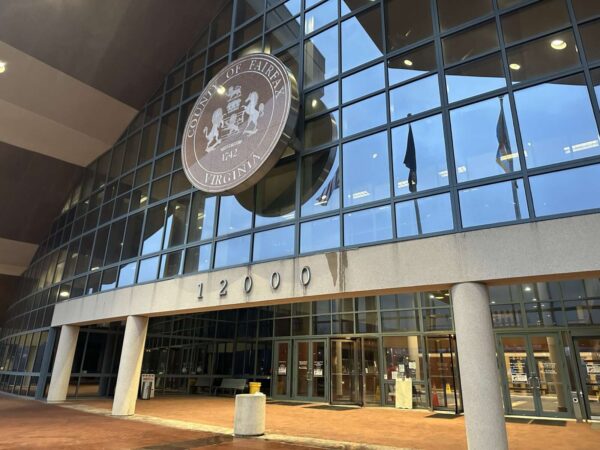
The years-long process to overhaul the Reston Comprehensive Plan will take a little longer than expected.
At a Fairfax County Board of Supervisors meeting today (Tuesday), Hunter Mill District Supervisor Walter Alcorn announced that changes to Virginia’s laws regarding public notice and hearing requirements will push public hearings on the long-running update to the plan into September.
“It’s an unfortunate and unintended consequence of the statutory amendments, but we want the county to move forward on all these matters in a manner that leaves no doubt about the soundness of our public hearing process,” Alcorn said.
Underway since 2020, the Reston Comprehensive Plan update lays out the county’s vision for the 6,750-acre area’s development, touching on everything from transportation to density recommendations for the transit station areas and village centers.
The proposed draft was shaped by county staff and a community task force convened by Alcorn in 2020. During a planning commission meeting in June, some residents criticized the county for releasing a supplement to the draft plan less than 24 hours before the public hearing.
The statutory changes will also affect the timeline for the work of a task force studying development and other related issues in the Reston Town Center North (RTC North) area, along with the approval of Reston’s Site-Specific Plan Amendment (SSPA) applications.
Alcorn said he hopes that the SSPA process will pick up in the fall following the adoption of the Reston Comprehensive Plan.
New rules adopted by the Virginia General Assembly require notices of ordinance amendments or land use applications to be published no more than 14 days before the items are intended to be adopted or passed.
Local boards must take a final vote on items following a public hearing or advertise another public hearing, when action will likely be taken. Notice for those hearings must be published no more than two weeks before the planned vote.
The board must also advertise land use applications or ordinance amendments in a local newspaper no more than 14 days before the items are intended to be adopted.
All public meetings and meeting documents must be posted at least three days before the meeting. Similar changes apply to planning commissions in the county.
The county is in the midst of taking a special look at several major redevelopment applications and land use changes. Other applications throughout the county are being considered as part of a separate work program.
The change allows for more opportunities for public feedback on the Reston Comprehensive Plan, Alcorn said. An additional planning commission public hearing is slated for July 19 before the plan goes to the board for a hearing on Sept. 12, according to Alcorn.
Other processes impacted by the new laws include comprehensive plan updates for the Pan Am Shopping Center in Merrifield, which has been proposed for redevelopment, and special exception applications. Loudoun County and other neighboring jurisdictions were also affected.
Alcorn said the move was undertaken “out of an abundance of caution.”
That means the public will now have at least four more chances to provide input on the plan. Along with the hearings before the commission and board, Alcorn plans to hold a town hall on July 27 at the North County Government Center and a virtual meeting ahead in August ahead of the September hearing.
Alcorn said he plans to distribute a mark-up of the plan before the board’s vote on the proposal.
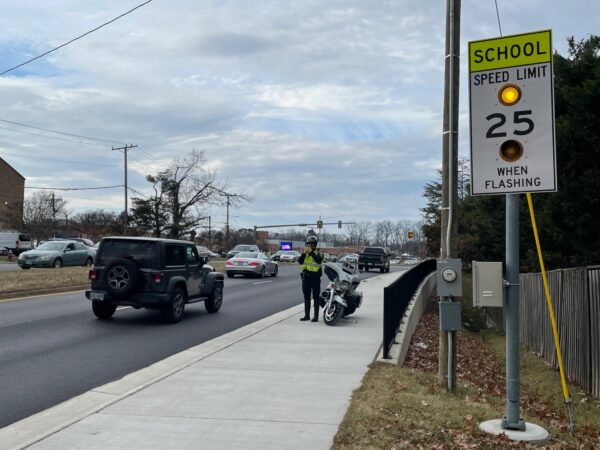
A number of new laws will take effect in Virginia this weekend, including expanded school zones, a prohibition on sexual harassment non-disclosure agreements, and classification of fentanyl as a “weapon of terrorism.”
Most laws passed by the General Assembly and signed by the governor each year go into effect on July 1, which marks the beginning of the new fiscal year.
This year, nearly 740 bills were signed into law. Some are more mundane, while others could significantly impact Fairfax County residents, like last year’s banning of ticket quotas and medical marijuana patients no longer needing to register with the state.
Here are nine noteworthy laws going into effect tomorrow (Saturday) in Virginia:
Prohibiting sexual harassment non-disclosure agreements
Introduced by local Del. Eileen Filler-Corn (D-41), HB 1895 — also known as the Silenced No More Act — prohibits any non-disclosure agreement (NDA) with the “purpose or effect of concealing the details of a sexual harassment claim.” If any such agreement does exist, it’s now “void and unenforceable,” per the new law. It mirrors recently enacted laws in other states as well as federal protections.
Assaulting a public transportation operator now leads to additional jail time
As attacks on bus drivers increase, HB 2330 now makes assaulting public transportation operators a Class 1 misdemeanor. That means a fine of up to $2,500 and up to one year in jail. The legislation, introduced by Del. Delores McQuinn of Richmond, also bans those convicted from using public transit systems.
However, critics say assailants often flee the scene prior to being arrested, suggesting the new law may not be particularly effective.
Fentanyl as “a weapon of terrorism”
Fentanyl overdoses have increasingly become a major concern, particularly among young adults, in Fairfax County and nationwide. To impose harsher penalties on the drug’s manufacturing and distribution, SB 1188 and identical bill HB 1682 reclassify fentanyl as a “weapon of terrorism,” making those acts Class 4 felonies that could carry up to 10 years of jail time.
The new law is similar to ones in other states, though critics say the law doesn’t take into account context or circumstances, and increasing penalties could make people less likely to call authorities when someone they are with overdoses.
Solicitation of a minor disqualifying for potential public school workers
Along with physical and sexual abuse, solicitation of a minor has been added as an offense that will bar someone from being employed or doing contract work for a public school, if convicted, under HB 1822.
The legislation is partially in response to last year’s conviction of a then-Fairfax County Public Schools counselor who solicited prostitution from a minor in Chesterfield. While the man was arrested in November and convicted in March, FCPS didn’t fire him until August. An investigation found Chesterfield officials didn’t notify FCPS until months after the incident. The Chesterfield Police Department claimed emails bounced back and went to spam. Read More
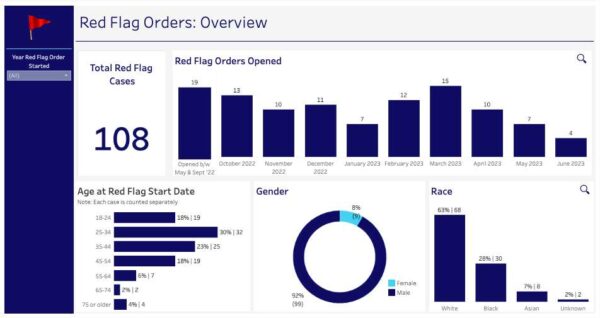
Fairfax County residents will now be able to access some data related to local temporary gun removal cases.
On June 13 (Tuesday), Fairfax County Commonwealth Attorney Steve Descano released to the public a continuously updated digital dashboard that tracks ongoing and past Emergency Substantial Risk Orders — known more commonly as Red Flag Orders — as well as view demographic breakdowns of those subjected to ESROs by race, gender and age.
Instituted in 2020, Virginia’s red flag law gives the Fairfax County Police Department and Commonwealth’s Attorney the authority to temporarily remove a gun or guns from someone’s possession if they have probable cause that the individual poses a ‘substantial risk’ to themselves or others.
When contacted by community or family members seeking to initiate a red flag order under a civil order, law enforcement will begin an independent investigation to determine whether one is appropriate.
If an order is granted, individuals are barred from purchasing, possessing or transporting any firearms for up to 14 days with opportunities for extension.
Fairfax County is the only jurisdiction in the state with a team dedicated to red flag orders, Descano told FFXNow by email. The county is the source of 75% of red flag orders in Virginia, he said when announcing the new dashboard.
The dashboard is intended to improve public communications and demystify the court processes for the general public, similar to one on bond decisions that the prosecutor’s office launched last year.
“We wanted this dashboard to bring transparency and awareness to the community about this law and that it can be a tool that saves lives,” Descano wrote. “By showing that it is being used, I hope Fairfax residents will know that if they have a dangerous situation, they can pick up the phone and get help.”
In addition to allowing community members to be more knowledgable about Virginia’s red flag law, the dashboard aims to be a useful tool for prosecutors in guiding their work.
“The other important role of the dashboard is how it informs my prosecutors’ decision-making,” Descano wrote. “We’re using this internally to track cases and make sure nothing falls through the cracks, and that’s a key piece of our day-to-day work on these cases. We have about nine months of data now that we’re working with, and as we get more data on Red Flag Orders, we’ll be able to identify trends that may help us and law enforcement further protect the community and handle these cases.”
The Commonwealth’s Attorney’s Office has opened 108 red flag cases since May 2022, 92% of them against men, according to the dashboard.
The data will expand over time as Descano’s office works to incorporate more and varied trends and demographics into the board, Public Information Officer Laura Birnbaum says.
“There’s a lot more in this story to tell about how these orders are coming to the police, who’s initiating them, who are the respondents and what kind of situations are we seeing these these orders come out. There’s more data and more trends to pull apart,” Birnbaum said. “…Are there times of year where we see more of these and others? What does that help inform us about other ways we could do gun violence prevention work?”
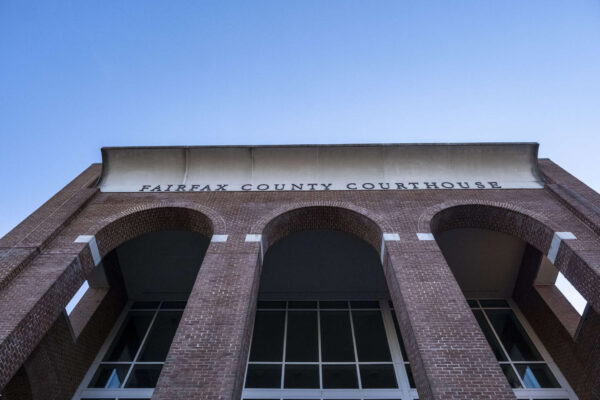
In response to calls for additional legal assistance, Fairfax County is poised to establish a self-help resource center in the library of its courthouse complex.
At a Fairfax County Board of Supervisors meeting on Tuesday (March 21), the board approved a board matter that would allocate $96,000 in fiscal year 2024 to support the project. The board matter was proposed by Franconia District Supervisor Rodney Lusk and Chairman Jeff McKay.
Reportedly the first of its kind in the state, the center would provide legal information, referrals, forms and resource materials on topics related to court issues. The board matter states that it would serve as an alternative option for people who can’t afford legal services and don’t have pro bono help available.
“In my District, we have had constituents contact my office desperate for legal differential last hey are unable to obtain legal aid services. In one instance, a child custody case, the parents had no idea what to expect at their court hearing and thus were not able to prepare for or understand the court process,” Lusk said in the board matter.
First pitched by the Fairfax Bar Association, which runs the law library, the proposal is being led by Fairfax County General District Court judges Susan Stoney and Dipti Pidkiti-Smith.
A 2019 study by the bar association found that the cost of hiring an attorney and the belief that cases can be handled alone are among the top reasons litigants didn’t have a lawyer.
“Access to justice for self-representative litigants is a significant issue facing the legal community today,” the board matter said.
Springfield District Supervisor Pat Herrity noted that the challenge is not limited to “Black and brown communities.”
Responding to Herrity, McKay emphasized that the board matter specifically refers to economically challenged residents and other communities who are most in need.
He said that statement was “absolutely factual” and “all encompassing.”
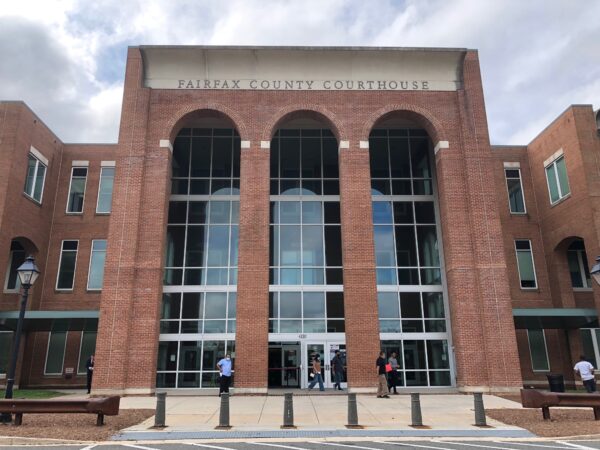
An expansion of the criminal charges eligible for record-sealing in Virginia has led to a surge in petitions for expungement to Fairfax County’s courts.
Faced with that increased caseload, the courts have moved to streamline the process by no longer requiring those petitioning for an expungement to attend a hearing, the Office of the Fairfax County Commonwealth’s Attorney announced last week.
As of March 1, a court hearing is only required if a petition is rejected.
“Previously, individuals would have to come to court for a one-minute hearing, which is a considerable burden if you’re unable to take off work, get childcare, or have other barriers to attending,” Commonwealth’s Attorney Steve Descano said. “Now, individuals can petition for an expungement by filing paperwork, which will be reviewed weekly.”
The process change was initiated by the Fairfax County Circuit Court judges, according to Court Clerk John Frey. It was implemented in a partnership between the judges, the clerk’s office and county prosecutors.
In Virginia, expungement removes criminal records from public view and prohibits access to them without a court order.
The Fairfax County Circuit Court received 701 expungement petitions between March 1, 2022 and March 1, 2023 — about three times more than the 211 petitions taken up the preceding year, according to data provided by Frey.
The court has taken in a total of 1,438 expungements over the past five years, including 168 petitions from March 1, 2018 to March 1, 2019, 200 in 2019-2020 and 158 in 2020-2021.
Frey attributes the increase over the past year directly to new laws adopted by the General Assembly in 2021 that introduced automatic sealing and significantly expanded the kinds of charges that can be sealed with a petition.
“The General Assembly made it much easier to obtain an expungement,” he said.
Currently, Virginia only expunges records if the petitioner is found not guilty, has the charges dropped or dismissed, or gets pardoned. In other words, a conviction will be public forever, regardless of how much time passes or the type of crime.
Under the 2021 law, which will take full effect in 2025, the state will automatically seal dismissed charges, acquittals, certain misdemeanor convictions, and cases where the person completes a “deferred disposition program,” such as Fairfax County’s specialized drug and mental health dockets.
Misdemeanors eligible for automatic sealing include simple marijuana possession, underage drinking, shoplifting, trespassing and disorderly conduct. The person must wait seven years since the conviction and have no new convictions during that time to have their record sealed.
The law also allows individuals convicted of other misdemeanors and Class 5 or 6 felonies to petition for expungement.
While automatic sealing won’t begin until 2025, the law has simplified the petitioning process by eliminating a fingerprint requirement, according to the Legal Aid Justice Center, which says expunging a criminal record typically takes at least nine months.
“A person’s criminal record can follow them around for a lifetime — even if they haven’t been convicted of the charges — potentially limiting their ability to get a job, benefits, or housing,” Descano said. “For people who want to start fresh, old criminal charges can prevent them from stabilizing their lives.”

As the Virginia General Assembly convenes this week for its 2023 session, local lawmakers hope to pass bills highlighting campaign finance reforms, raising teacher pay, paid sick leave, and other issues.
The General Assembly will meet in Richmond on Wednesday (Jan. 11) for a 46-day session lasting until Feb. 25, though special and reconvened sessions later in the year are possible.
Members have been allowed to pre-file bills since November, and Fairfax County’s delegation held a public hearing on Saturday (Jan. 7) where community members shared their thoughts on what should be prioritized.
Members have until Wednesday morning to pre-file bills.
Facing a divided General Assembly, with Republicans controlling the House of Delegates and Democrats holding the Senate, local representatives likely won’t see all of their bills become law, but here are 12 proposals worth noting:
Campaign finance reform
- Limit political donations to $20,000: Introduced by Sen. Chap Petersen (D-34), SB 803 would prohibit individuals from making a single donation to anyone vying for state office for more than $20,000.
- Prohibit contributions from public utilities: Also filed by Petersen, SB 804 would prohibit candidates from accepting contributions from any public utility company. Petersen has introduced versions of this bill before but hasn’t succeeded in getting it passed.
- Prohibit personal use of campaign funds: The potential new law HB 1552, introduced by Del. Marcus Simon (D-53), would ban candidates from using campaign funds for personal use, something that’s already prohibited in many other states.
Education
- Alternative learning assessments in schools: SB 819, pre-filed by Sen. Barbara Favola (D-31), aims to allow each local school district “to use any nationally recognized, research-based assessment or screener” as an alternative to Virginia Department of Education-approved tests. This comes after new state-proposed history standards were rejected by the Board of Education in November. Revised draft standards were released Friday (Jan. 6).
- Higher teacher compensation: Del. Kaye Kory (D-38) is co-introducing HB 1497, which calls for state funding to be used to compensate public school teachers at or above the national average. Currently, the average pay for teachers in Virginia is about $7,000 below the national average.
Gun Control
- Unattended firearms in motor vehicles: SB 901, introduced by Sen. Dave Marsden (D-37), would make it illegal to leave a firearm unattended in a motor vehicle unless it’s locked up in its own compartment or container.
Health care
- Prohibit warrants for menstrual health data: SB 852 would prohibit the issuing of warrants for the search and seizure of any device containing digital information related to menstrual health data. Filed by Favola, the bill addresses fears from some that period-tracking apps could be used against someone considering an abortion.
- Paid sick leave for health care and grocery store workers: Introduced by Sen. Scott Surovell (D-36), SB 886 would require health care and grocery store employers to provide paid sick leave. As noted in the bill, current law only requires paid sick leave for some home health care workers. A version of this bill passed the Senate last year but failed in the House.
- Treatment for “problem gambling“: With sports gambling now legal in Virginia, Del. Paul Krizek (D-44) is proposing HB 1465, which would establish a committee to help “reduce the negative effects of problem gambling.”
Rights
- Bars insurrectionists from holding public official: Del. Dan Helmer (D-40) is introducing HB 1562 to bar those “convicted of participating in an insurrection” from ever holding a position of “public trust.”
- ASL interpreters in courtrooms: Surovell’s SB 814 lets the court appoint a certified American Sign Language interpreter itself for the courtroom.
- No arrest for assault on law enforcement in mental health emergency: HB 1561 from Del. Vivian Watts (D-39) exempts individuals from being arrested or prosecuted for assaulting a law enforcement officer if they’re experiencing a mental health emergency. A study done last year showed that about 10% of those charged with assault on law enforcement officers had a history of mental illness.
Transportation
- Pedestrian signals apply to bicycles and scooters: Favola’s SB 847 calls for pedestrian control signals to also apply to those riding bicycles, mopeds, electric bikes, scooters, and all other forms of electric motor transportation. A companion bill is being filed by Del. Rip Sullivan (D-48) in the House.
Photo via Doug Kerr/Flickr

Fairfax County property owners are officially required to contain running bamboo on their property — or face potential fines.
Effective as of Jan. 1, the county’s new running bamboo ordinance calls for property owners to get the invasive grass species under control and imposes civil penalties on property owners who let it “spread to adjacent properties or any public right-of-way.”
The ordinance was approved by the Board of Supervisors back in March 2022, along with a fine structure that includes $50 for the first complaint or violation, $200 for subsequent violations, and a $3,000 cap on fines over a 12-month period.
Officials have reiterated that staff will first seek to educate and allow for violations to be corrected voluntarily before imposing fines. When the issue went to a public hearing in February, several residents and supervisors expressed some concern about the financial implications of the fines.
In March, though, Fairfax County Director of Code Compliance Jack Weyant suggested fines would only be invoked for cases that have gone on for a year or longer.
Running bamboo is a fast-growing, invasive grass with an even more aggressive root system (rhizomes) that can spread underground up to 15 feet per year.
“Once planted, running bamboo can eventually take over yards and travel across property lines, creating issues for adjacent property owners and local jurisdictions,” Weyant told FFXnow. “Roots can push through brickwork, drains, cavity walls, patios, and exploit cracks or weaknesses in concrete.”
Weyant noted that the new ordinance “does not ban bamboo” but requires property owners to prevent it from growing on adjacent properties, including public property.
The county has set up a webpage to advise residents on the best methods to contain, prevent overgrowing, and dispose of bamboo.
Options include setting up a metal and plastic “bamboo root barrier” that deflects rhizomes back towards the bamboo owner’s property, encouraging the plants to grow vertically instead of spreading horizontally.
The county also suggests mowing bamboo often and using herbicides to prevent further growth. All cut bamboo should go in trash pick-up, not yard waste, per the county.
The complete removal of bamboo from a property is extremely difficult.
“Digging out bamboo requires heavy equipment and coordination with Virginia 811,” the website says.
In 2017, the Virginia General Assembly passed a law that let localities impose financial penalties on property owners who allow bamboo to run wild. However, Virginia still allows commercial sales, an issue that Fairfax County supervisors have previously said needs to be corrected by the state.
The county itself will also have to adhere to the new ordinance.
The Fairfax County Park Authority (FCPA) manages about 204 acres of bamboo that draw 10 to 20 complaints a year from neighboring homeowners. FCPA removes two to three bamboo sites a year, but it’s expensive.
In April, the FCPA told FFXnow that a recent removal of about an acre of bamboo cost about $35,000, mostly due to herbicide treatment costs.

